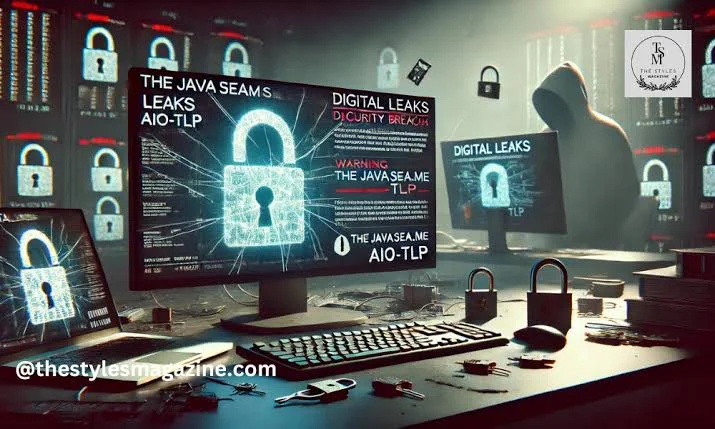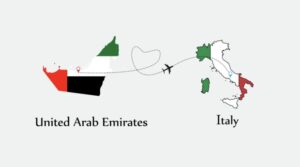Unraveling thejavasea.me: A Deep Dive into AIO-TLP Leaks
The digital age has brought with it a host of new challenges and ethical dilemmas, particularly concerning privacy and information sharing. Among the murky waters of the internet, thejavasea.me stands out as a notable forum for data sharing, particularly its involvement with AIO-TLP (All In One – Trusted Level Protocol) leaks. This article aims to explore what thejavasea.me leaks aio-tlp is, its implications, and the broader context of data leaks in our society.
Overview
At its core, thejavasea.me is a platform that operates in a gray area of the internet. While many forums exist for legitimate discussions and data sharing, this site has garnered a reputation for facilitating the distribution of leaked information. Users of the site can share various types of data, often without the consent of the individuals or organizations involved. This raises significant ethical questions about privacy and consent.
Data Types
One of the key aspects of thejavasea.me is the variety of leaked data it hosts. This can include:
Personal Information: Often, users find databases containing sensitive personal information such as names, addresses, and phone numbers.
Financial Records: Leaked financial documents, including bank statements and credit reports, are frequently shared, posing severe risks to individuals’ financial security.
Confidential Documents: Various types of confidential documents, ranging from internal memos to corporate secrets, can be found on the platform.
The Gray Area
The existence of sites like thejavasea.me reflects a broader trend in the digital landscape: the struggle between information freedom and privacy rights. While some argue that such platforms are essential for transparency, especially regarding government and corporate actions, others highlight the potential harm they can cause to individuals.
Legal Implications
The legality of data leaks is a complex issue. In many jurisdictions, sharing someone’s personal information without consent can lead to criminal charges. However, the online anonymity provided by such forums complicates legal actions. Investigators often find it challenging to trace the origin of leaks or hold individuals accountable.
Ethical Considerations
Ethics play a crucial role in the discourse surrounding thejavasea.me. Users often rationalize their actions under the guise of information sharing or whistleblowing. However, the potential for harm to individuals whose data is leaked cannot be overlooked. The ethical dilemma centers on balancing the public’s right to know against an individual’s right to privacy.
Community Dynamics
The community surrounding thejavasea.me can be quite diverse. It attracts individuals from various backgrounds, including:
Hackers: Some users may be hackers or individuals skilled in extracting and sharing data.
Whistleblowers: Others may see themselves as whistleblowers, believing they are revealing corruption or wrongdoing.
Curious Individuals: Many simply browse the site out of curiosity, unaware of the implications of accessing or sharing leaked data.
This mixture creates a unique dynamic, where the motivations for participating in such a forum can vary widely.
Risks and Consequences
Engaging with platforms like thejavasea.me carries inherent risks. For individuals who share or seek out leaked information, the consequences can be severe. This can include:
Legal Action: As previously mentioned, users can face legal repercussions for sharing or even accessing leaked data.
Reputation Damage: Being associated with such a platform can lead to reputational harm, both personally and professionally.
Emotional Impact: The fallout from being involved in leaked data, whether as a victim or perpetrator, can lead to emotional distress and anxiety.
Alternatives
For those seeking transparency and accountability without the ethical pitfalls of sites like thejavasea.me, there are alternatives. Whistleblower organizations and legitimate transparency initiatives provide safer avenues for sharing information responsibly. These organizations often have guidelines in place to protect the identity and rights of individuals involved.
Conclusion
Thejavasea.me and its connection to AIO-TLP leaks serve as a microcosm of the broader debates surrounding privacy, ethics, and data in the digital age. While the platform may provide a space for information sharing, it also raises critical questions about the implications of such actions. As we continue to navigate the complexities of the internet, it is essential to consider the ethical dimensions and potential consequences of engaging with forums that operate in the shadows.
In this age of information, understanding the boundaries of privacy and consent becomes more crucial than ever. Ultimately, the challenge lies in finding a balance between the pursuit of knowledge and the respect for individual rights. As users, we must navigate these waters with caution, always mindful of the impact our actions may have on others.














Post Comment